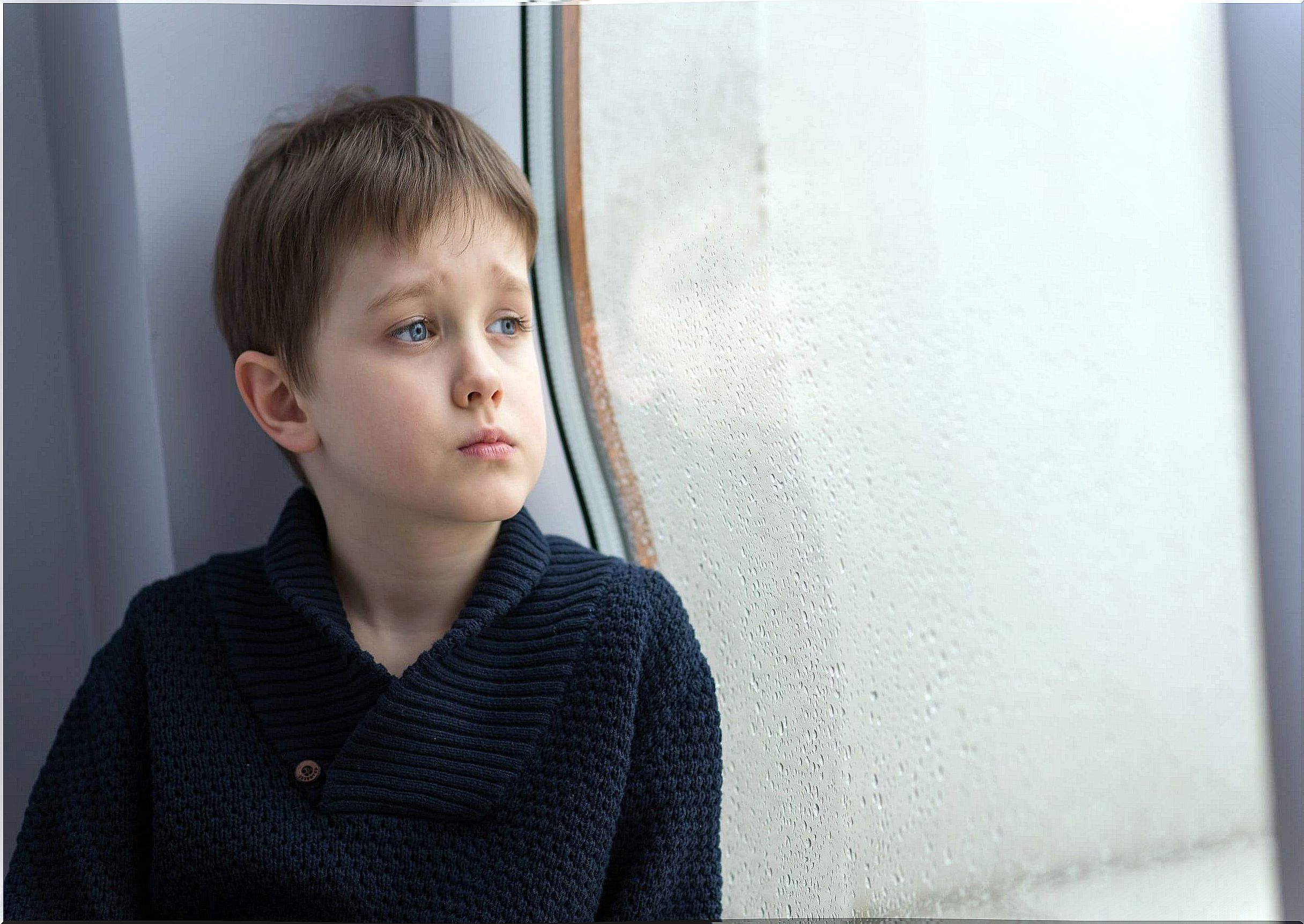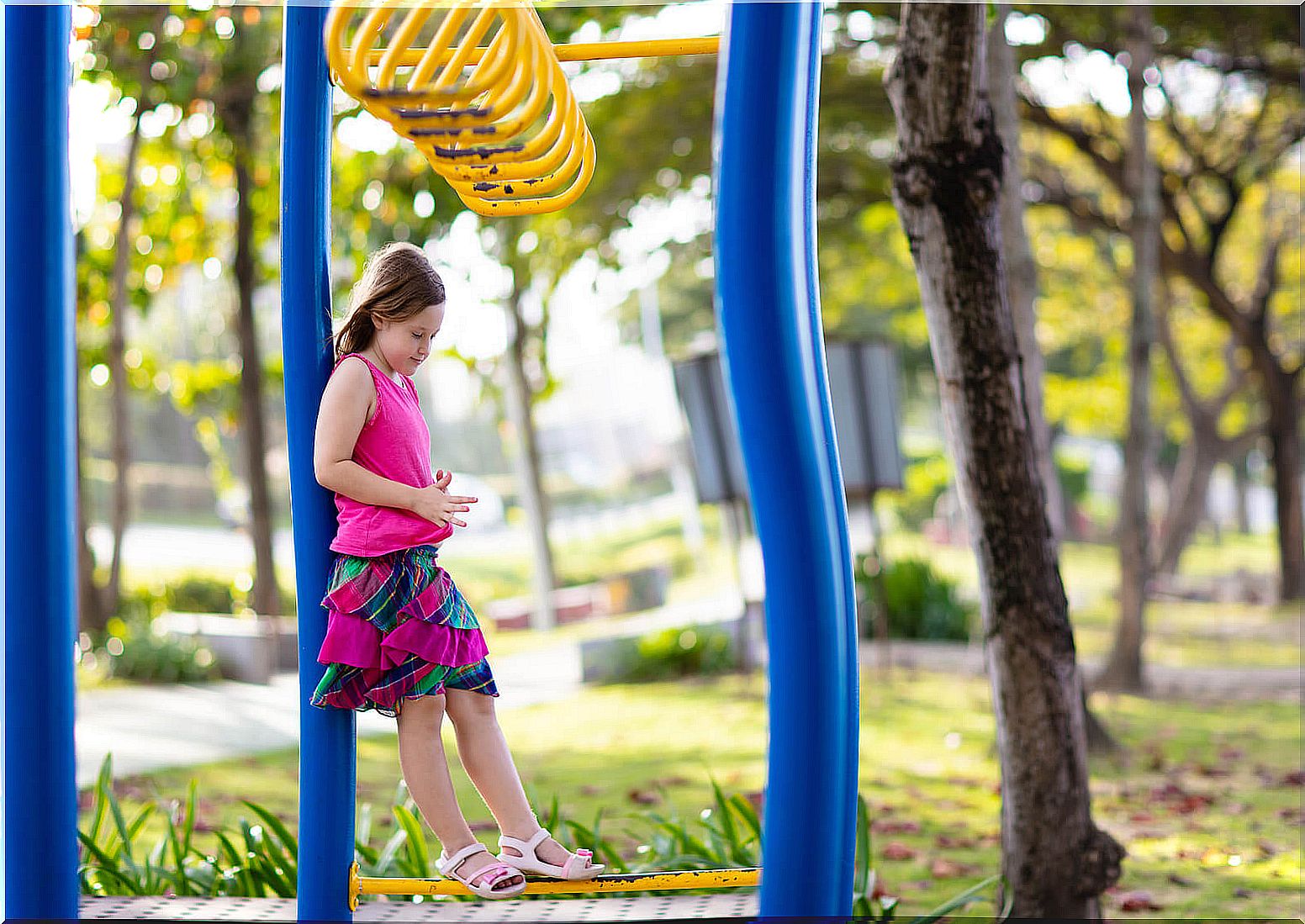Children Who Feel Lonely: How To Act?

Sometimes we underestimate infants and their emotions. We believe that they do not have problems, worries or gaps, since their life, in appearance, is simple. However, there are many children who feel lonely, who do not see their affective and belonging needs satisfied. But, above all, this happens many times before an environment that does not seem to realize what is happening.
If loneliness begins to be habitual in the soul of a child, its effects will be noticeable in a short time. They will generally be sad, listless, and hopeless. It will be difficult for you to connect with your peers, enjoy daily activities and, in addition, it is likely that you will begin to show hostility towards your parents. When this happens, it is important that adults take up our share of responsibility and act to remedy it.
How to deal with children who feel lonely?

Physical presence
On many occasions, children’s feelings of loneliness stems from the most obvious and objective fact: they are alone. Or, at least, they are for a large part of the day.
Due to work obligations, parents cannot always be at home when the child returns from school, accompany him while he does homework, or even have dinner with him. Furthermore, the numerous extracurricular activities attended by many minors make it extremely difficult to reconcile the schedules of children and adults.
Therefore, if your child feels lonely, it is important that you find a way to spend more time with him. It is clear that there are obligations that cannot be neglected, but it is always positive to look for small moments in the day to day to fully dedicate to the children. Take him with you to the supermarket, invite him to cook together or find a way to share your free time in some pleasant activity.
Emotional availability
On the other hand, it is possible that the problem does not come from the physical absence, but from the emotional one. Technology has invaded our lives and, while we connect to the network, we disconnect from our loved ones. Thus, many parents and children spend long hours in front of the screens instead of meeting, talking and strengthening their emotional bond.
To prevent this from happening, make sure you find quality spaces dedicated exclusively to connecting emotionally with your children. Lunchtime or dinner time, car trips, moments before going to bed …
Use these opportunities to chat with the child about their experiences, dreams or concerns and share yours with them. Also, remember to frequently express your love for him and how valuable he is to you, both in words and in actions.
Quality of social relations
In addition, loneliness not only arises within the family, but can be enhanced in interaction with peers. Children need to establish enriching and meaningful social relationships, find those partners with whom to grow, share, play and develop their personal skills.
Many children, despite having different groups of peers (from class, from the neighborhood, from extracurricular activities …) do not really have quality friends.
Spending time with other children does not guarantee that an emotional connection will be established and many minors feel that they do not fit in with anyone, that they do not have true intimacy and complicity with any of those they know.
If this happens, it will be necessary to find the reason and give the little one the tools to begin to build deeper relationships. The help of a professional can be key in this process.

Lonely Children Become Hurt Adults
Childhood is a critical stage in terms of the formation of concepts, beliefs and attitudes. Based on these early experiences, the child determines his own worth, as well as what to expect from others. Learn to feel loved, integrated, and happy or to see yourself as a flawed, rejected, and lonely person.
This has great repercussions on the development of the personality that will be difficult to change later. Therefore, make sure that your child feels physically accompanied, understood and emotionally supported and, above all, valuable. Only in this way will you approach interpersonal relationships with confidence and not with fear. Only in this way will you be a healthy adult and not a wounded one.










